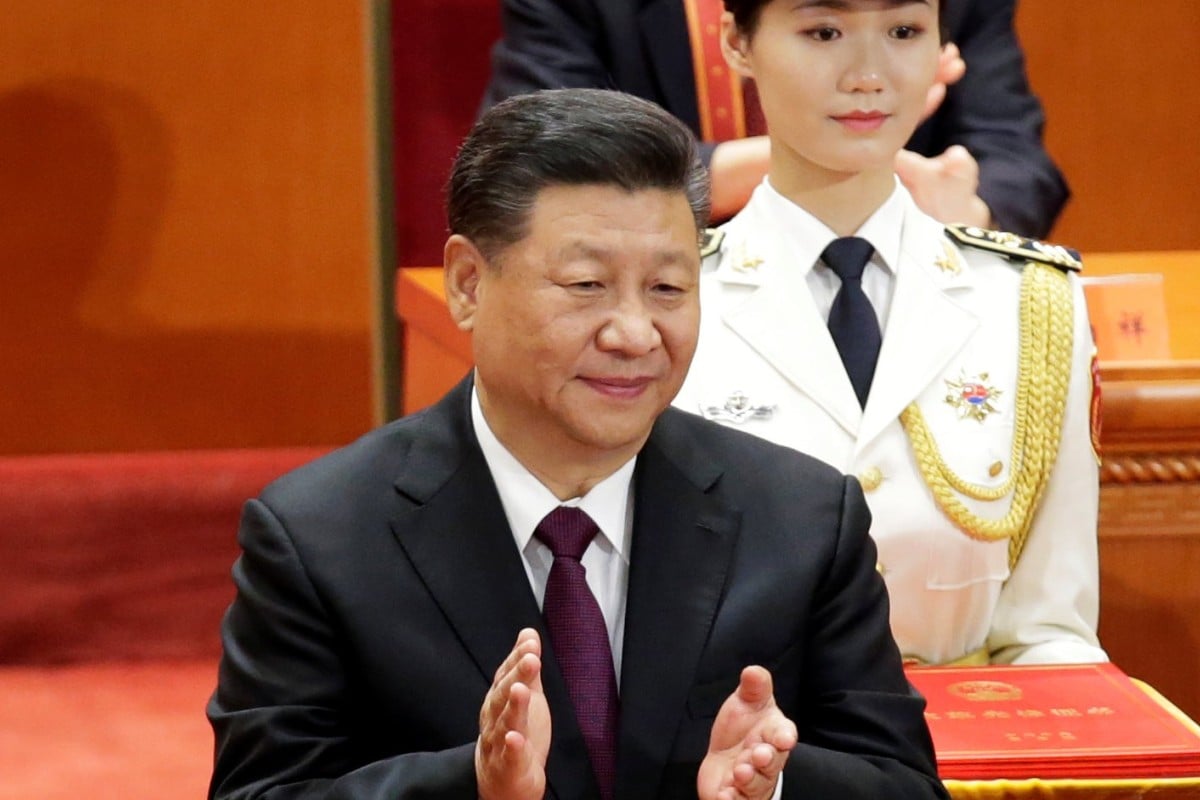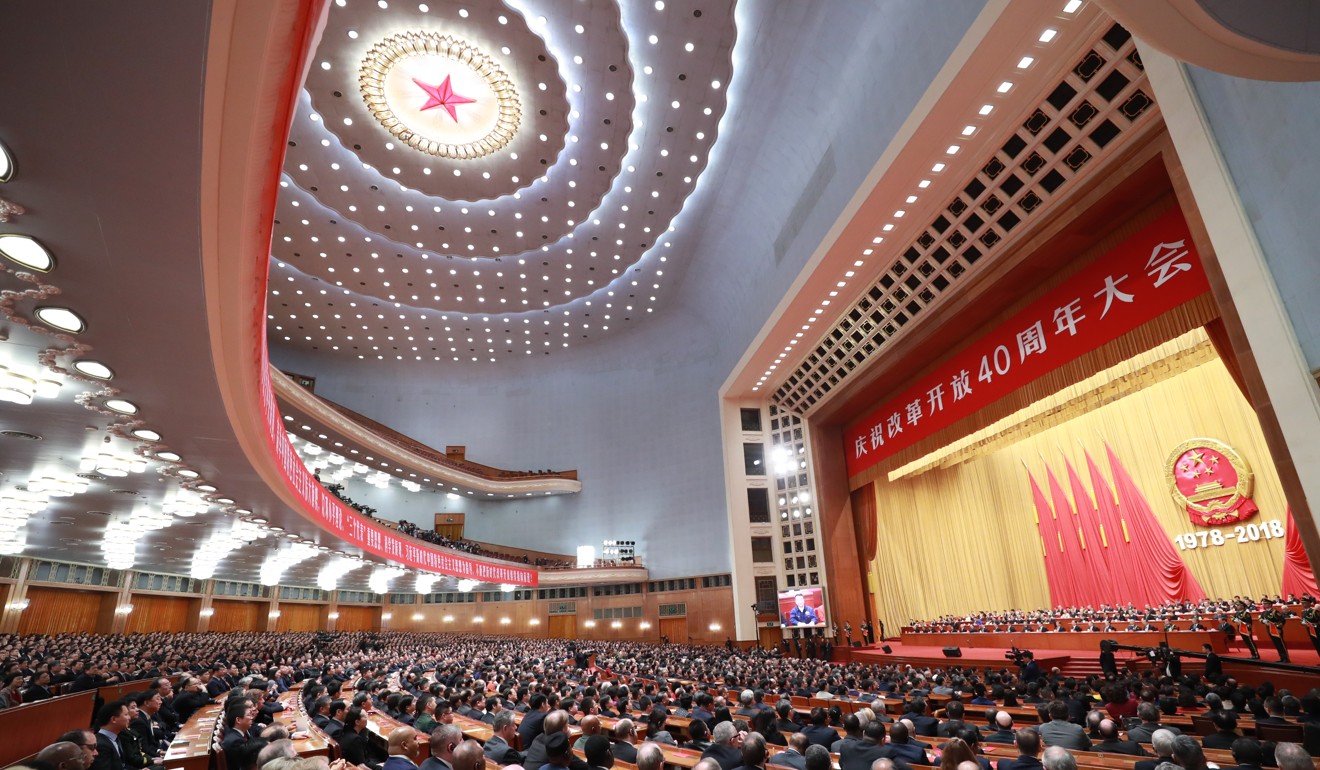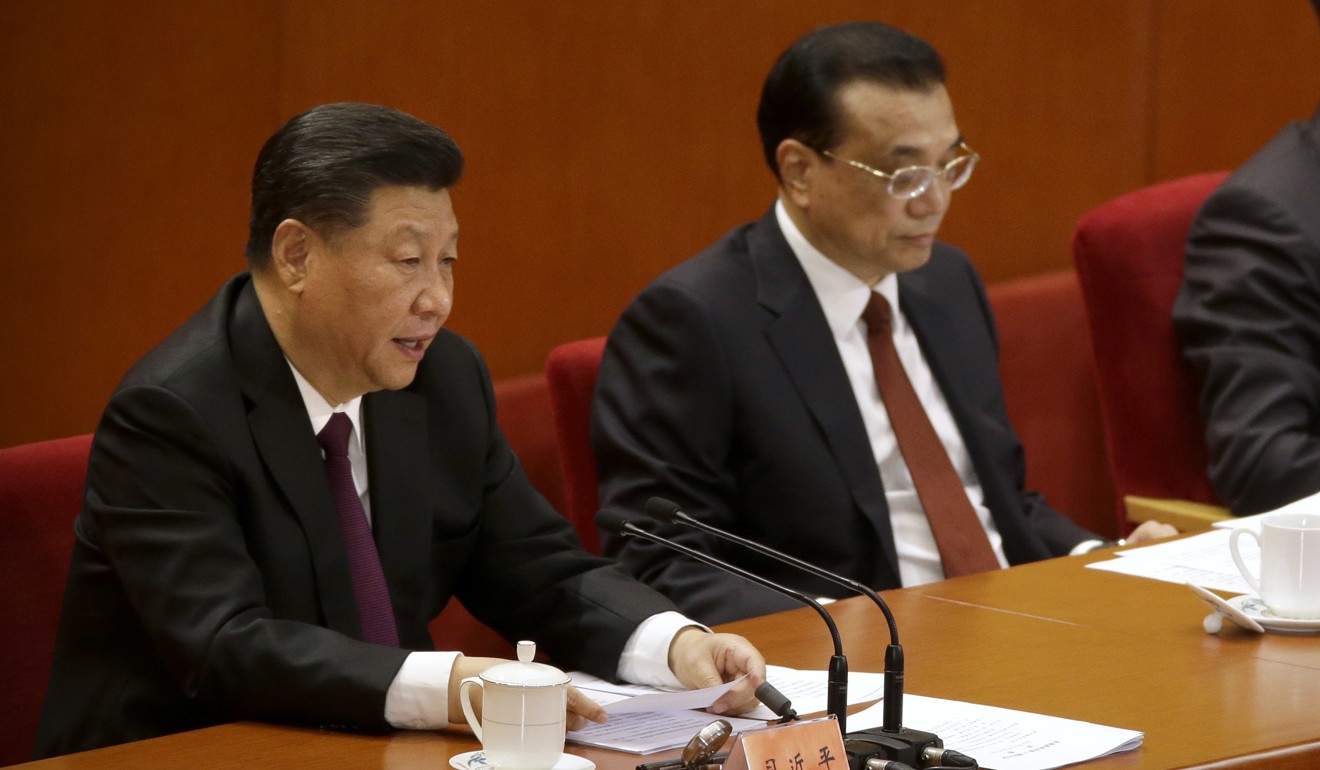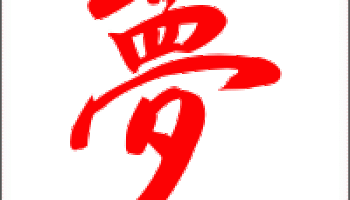https://www.bloomberg.com/news/videos/2018-12-18/china-won-t-be-dictated-to-jinping-video
https://youtu.be/8A10yeIodrc https://youtu.be/sajhWARyFJM https://youtu.be/lX2cxhaagew
https://youtu.be/8A10yeIodrc https://youtu.be/sajhWARyFJM https://youtu.be/lX2cxhaagew
Chinese President Xi Jinping stressed self-reliance amid “changes unseen in 100 years,” as the country faced an economic slowdown and a more confrontational U.S. under President Donald Trump.
In his annual New Year’s Eve address, Xi stressed China’s capacity to weather the storm, citing a series of industrial and technological achievements in 2018. He said the government would keep growth from slowing too quickly and follow through on a tax cut as part of an effort “to ease the burden on enterprises.”
“Despite all sorts of risks and challenges, we pushed our economy towards high-quality development, sped up the replacement of the old drivers of growth, and kept the major economic indicators within a reasonable range,” Xi said.
The speech followed reminders of Xi’s twin challenges: another dose of weak economic data Monday and a phone call with Trump on Saturday touching on their trade dispute. China’s factories slid back into contraction territory in December, with the manufacturing purchasing mangers index dropping to 49.4.
Meanwhile, a U.S. delegation led by Deputy Trade Representative Jeffrey Gerrish was preparing for talks in Beijing next week that would test a tariff cease-fire established earlier in the month by the two sides. Trump said he and Xi spoke at length and that “big progress” is being made toward a deal.
Looking Ahead
Next year marks 70 years since Mao Zedong led the Communist Party to power -- a milestone that would surpass the Soviet Union. The anniversary underscores the urgency Xi faces in turning around stalled growth and investor confidence, while pushing forward an agenda of political reform that will strengthen his power.
The government launched over 100 reform measures in 2018, Xi said Monday, and stepped up efforts to improve standards of living.
“Our people are the country’s solid foundation and our main source of confidence to govern,” he said.
A little less than a year since he scrapped term limits, clearing the path toward his indefinite rule, Xi has seen his major initiatives -- notably the Belt and Road trade and infrastructure program -- draw international backlash amid the unprecedented trade war.
Over the next few months, March’s National People’s Congress and April’s Belt and Road Summit, both to be held in Beijing, could see the announcement of new regulations and investments meant to counter skepticism over Xi’s leadership.
China is already considering a new law on the practice of forced technology transfer that has drawn U.S. ire, and stepped up internal scrutiny of Belt and Road as poorer countries adopt a more cautious approach to China’s plans for what it regards as its backyard.
The country’s growth is still slowing as it transitions from a high-growth, export-led model to a consumer- focused state. Top economic policy makers last week pledged to exact “significant” stimulus policies this coming year.
— Bloomberg, with assistance by Shuping Niu, Dandan Li, and Fox Hu
Related:
2018: End of an era - Global Trends
China will tread own path steadily in 2019
In the face of sudden escalation of China-US trade conflict throughout 2018, Beijing chose neither a concession nor a confrontation. The country has continued advancing and establishing its position as the world's second largest economy, maximizing its vitality and cooperation. Undoubtedly, that is China's lifeline to keep steady progress in an increasingly restless world.https://youtu.be/FBABIdKFzfQ
https://youtu.be/S8Va_K4Omkc
Related posts:
China marks 40th anniversary of reform and opening-up with greater resolve to cope with unimaginable perils'









